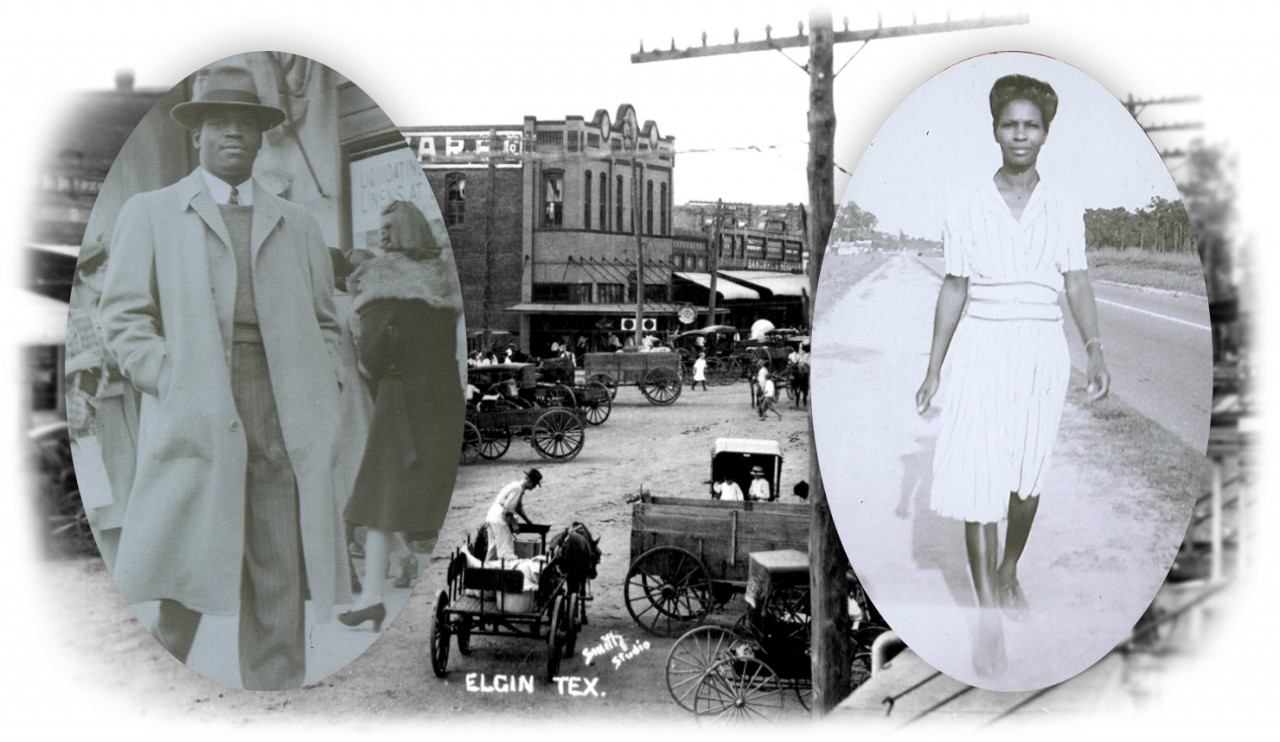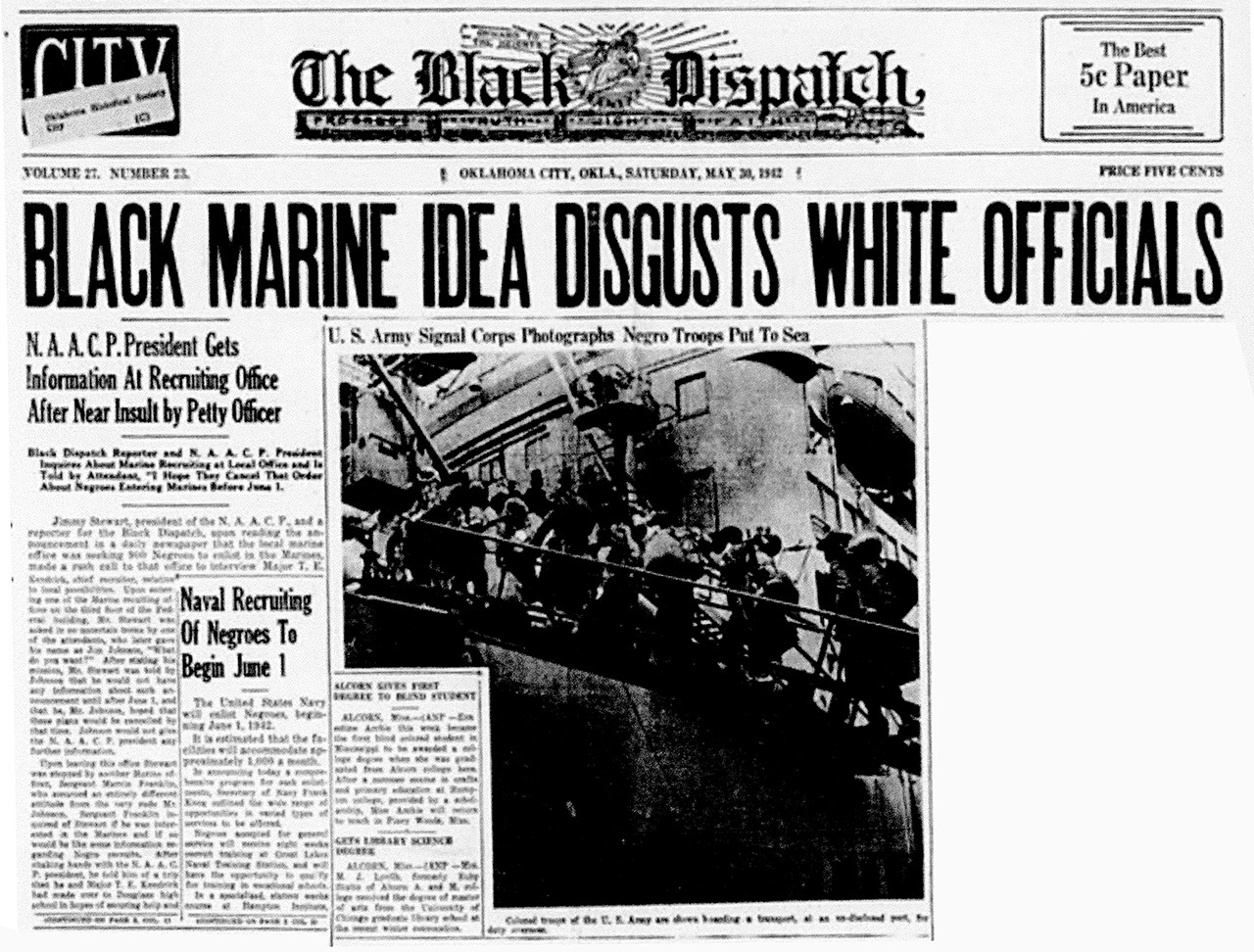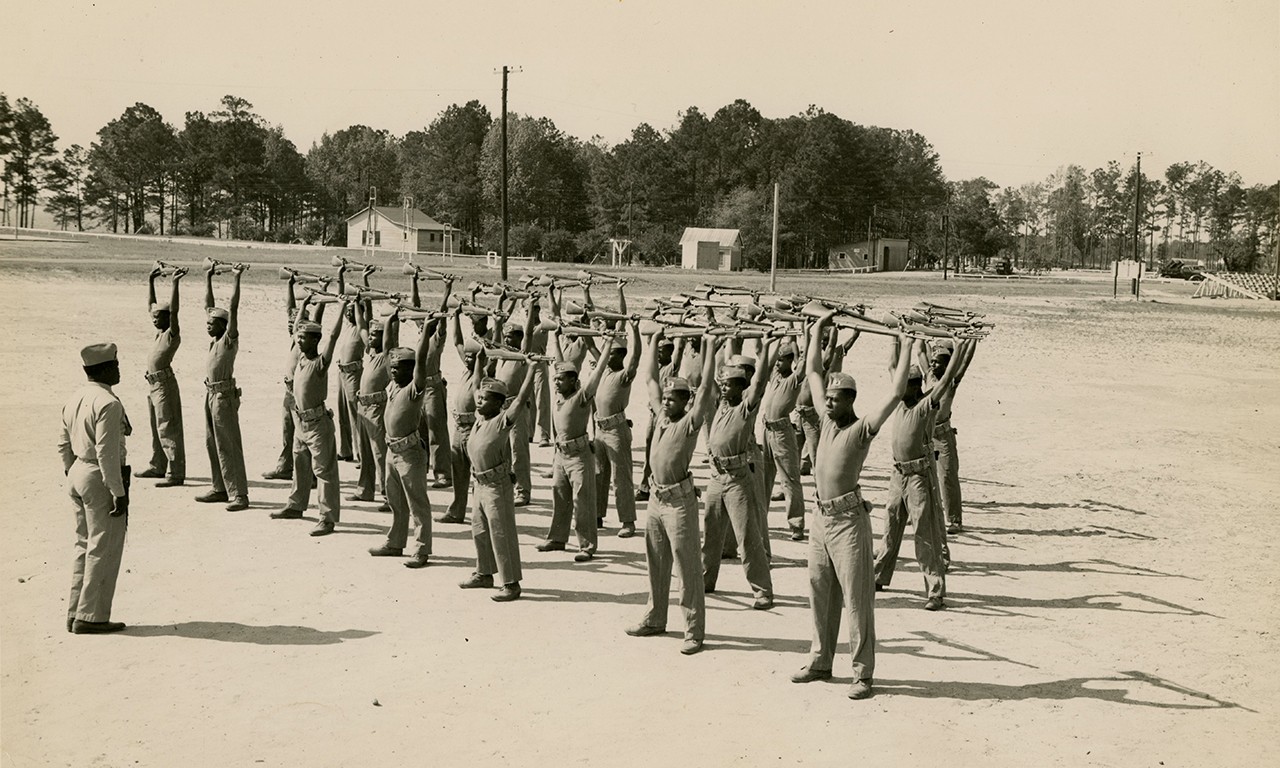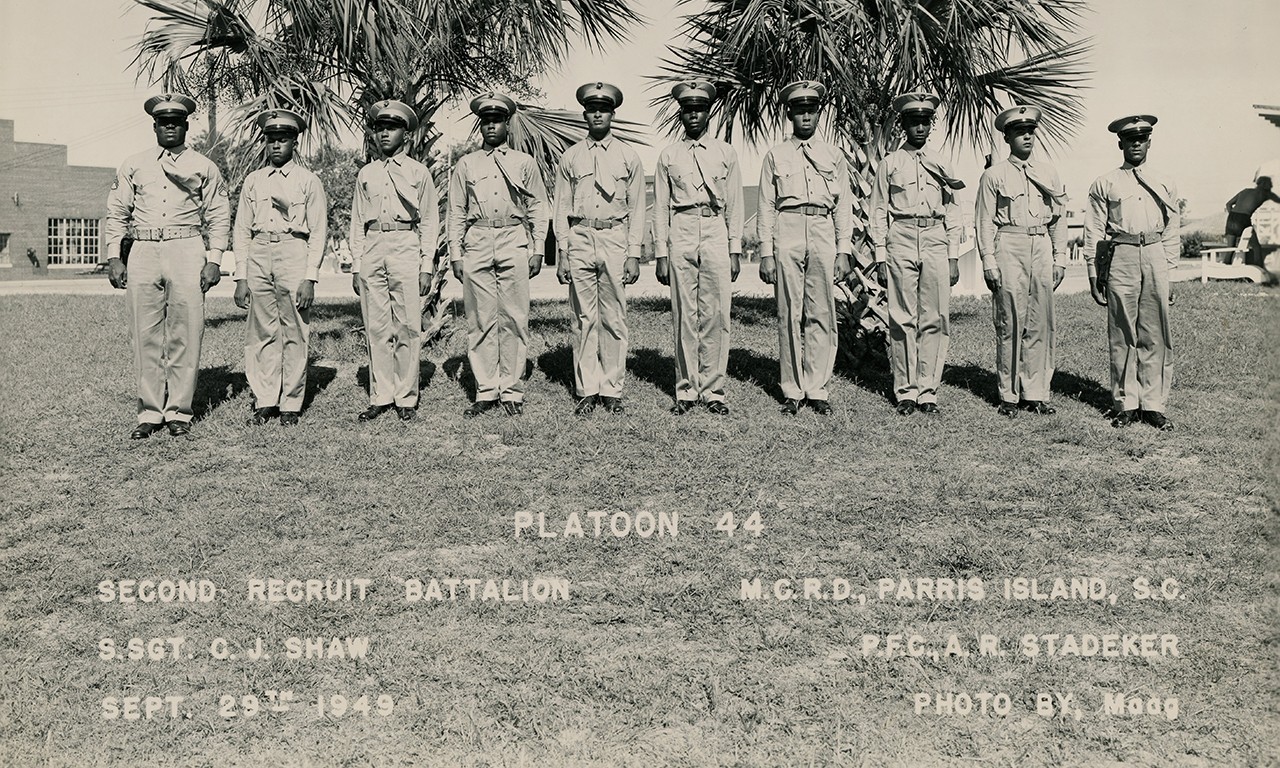© 2023 Kreativa. All rights reserved. Powered by JoomShaper
Test of Medal: Charles J. Shaw and the Montford Point Marines
 |
| New exhibition on the life of Charles J. Shaw II, running from November 11, 2020 to January 10, 2021 |
Veteran’s Day
Originally marking the armistice ending World War I, Veteran’s Day has become an annual reminder to thank all the brave men and women in the United States armed forces. The Bowers Museum has celebrated this Veteran’s Day with an exhibition on Charles J. Shaw II, one of the first Black men to join the United States Marine Corps (USMC) and the first Black Marine drill instructor to train a desegregated platoon of marines. In this post we look at his early life, military career, and the history of the “Blacks-only” segregated USMC base, Montford Point.
 |
| Charles and Sarah Shaw, c. 1940 and Elgin, Texas, 1916 |
Begin Elgin
Charles J. Shaw II was born in Elgin, Texas on September 13, 1916 to Charles and Irene Shaw. In the early years of the 20th Century, much of the country was segregated. Despite being a town of only a little over 1,600, Elgin had separate facilities for Blacks, and Shaw attended segregated schools until graduating from High School in 1933. Teaching was a passion for him, so out of grade school he decided to attend Tillotson College, a university for Black men, in nearby Austin, Texas. He finished in 1938 with a degree in Social Science before beginning to teach at his old high school. He met his wife, Sarah Johnson while he was at Tillotson and they married on October 7, 1939. They had five children together between 1944 and 1960 and were married until his passing.
 |
| Headline from the May 20, 1942 edition of The Black Dispatch |
Two Camps Doctrine
While Blacks had historically served in wars throughout American history, most notably the American Revolution and Civil War, at the beginning of WWII, they were disallowed from joining the USMC. With a growing US War effort and increasing pressure from civil rights groups, President Franklin D. Roosevelt and others began realizing the foolishness of preventing any patriotic American from serving their country. On June 25, 1941 he signed Executive Order 8802 to prohibit ethnic or racial discrimination in the military, forcibly opening the USMC to Blacks in the following year despite the protestations of Thomas Holcomb, the Commandant of the USMC at the time. Holcomb’s solution was to create Montford Point, a separate training facility for Black Marines built just across the New River from North Carolina’s Camp Lejeune. A nation-wide recruiting drive was put in place and the first marines began to arrive there in 1943, not finding a fully built camp, but a series of tents with only a handful of permanent buildings. The new Marines’ first task was to build the base.
 |
| Charles J. Shaw (left) training a platoon of Black Marines at Montford Point, 1946-1949 |
New Drill
Leadership at the base was at first formed from a pool of white Marines who had served in Latin America and Asia—it was believed that their experience with other races would help with training Black recruits. As Black Marines graduated from boot camp, however, a select group of them were promoted to be drill instructors and train subsequent platoons of Marines. Heeding the national call for Blacks to join the USMC, Shaw enlisted as a Private on October 5, 1943. We know from his record that at some point he served at an Army post exchange, but it is unclear when he trained at Montford Point. A photograph taken in 1944 already shows him in full Marine regalia. Whatever the case, less than three years after enlisting Shaw was promoted to the rank of Sergeant and both he and his family moved to North Carolina where he served as a drill instructor at Montford Point.
 |
| Charles J. Shaw II (left) with Platoon 44 at Parris Island, South Carolina, 1949 |
Lasting Legacy
Stories told by his marine recruits almost 80 years later tell of a man who was equal parts tough and fair. He was 6’3”, weighed 235 pounds, and earned a reputation during his time at Montford Point for standing in for an exhibition match with Joe Louis. He demanded the very best from his platoons, knowing that they would be held to a higher standard than white Marines. Between 1942 and 1949 about 20,000 Black Marines trained at Montford Point, with 8,000 of them traveling to the Pacific theatre and serving under fire. Due to drill instructors like Sergeant Shaw, Black Marines almost immediately changed the dialogue about Blacks in the armed forces. On July 26, 1948 President Truman signed Executive Order 9981 to formally integrate the segregated military. Less than a year later Montford Point was deactivated, and the newly promoted Staff Sergeant Shaw moved to Parris Island, South Carolina where he became the first Black Marine to train integrated platoons of marines.
Just the Beginning
For their bravery, tenacity, and patriotism, in 2011 President Barack Obama awarded 20,000 unnamed Montford Point Marines with the Congressional Gold Medal, the highest award that can be bestowed to US citizens. In the weeks to come the Bowers Blog will continue this series with more on the life of Charles J. Shaw, his connection to Santa Ana, and his daughter, Brenda Matthew’s, long road to him personally being awarded the Congressional Gold Medal in a posthumous ceremony. To learn more in the meantime, visit the Bowers Museum to see the newly opened exhibition Test of Medal: Charles J. Shaw and the Montford Point Marines.
Images provided by the Shaw family. Text and images may be under copyright. Please contact Collection Department for permission to use. References are available on request. Information subject to change upon further research.

Comments